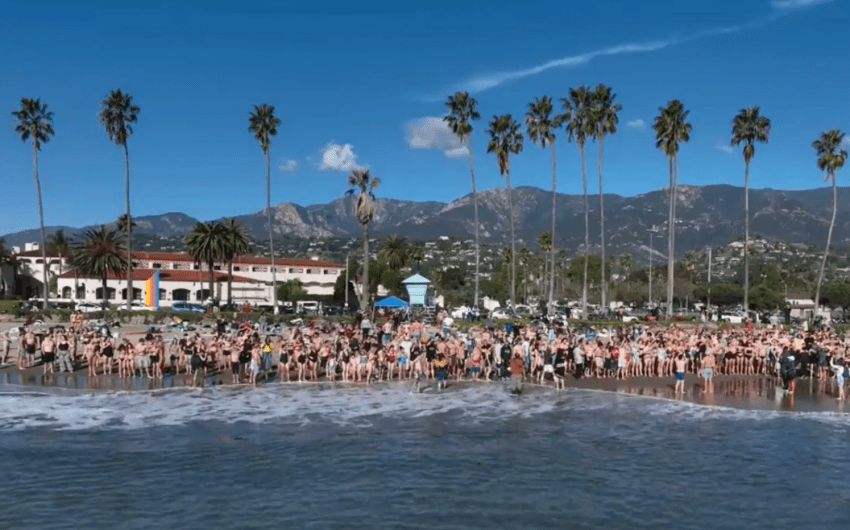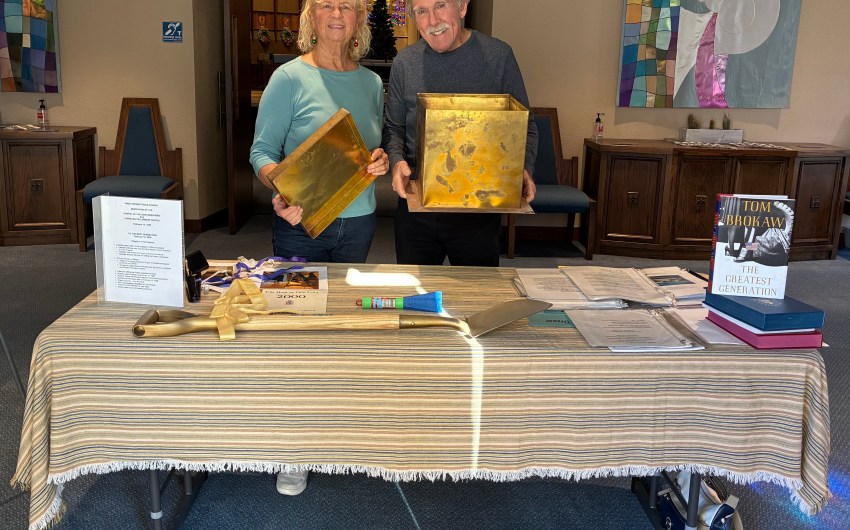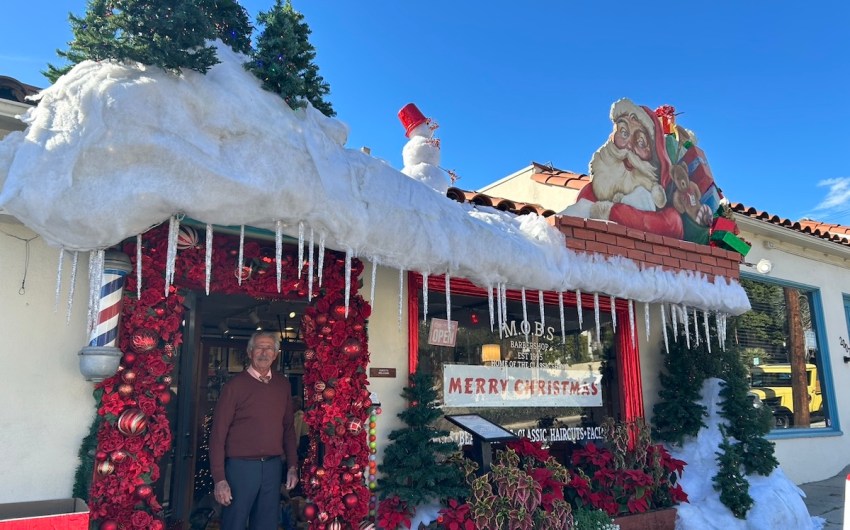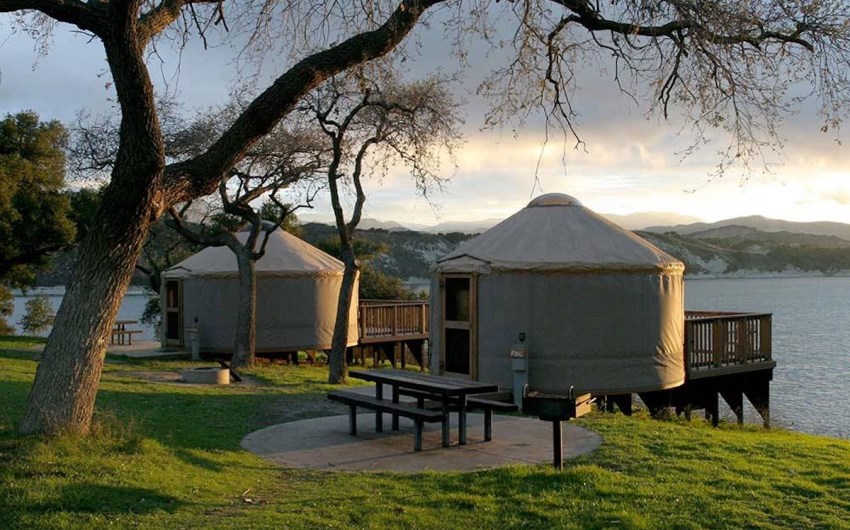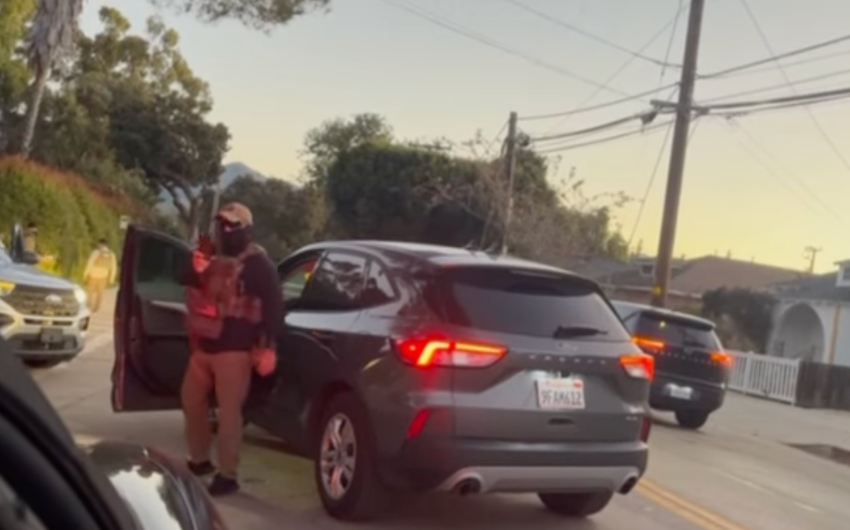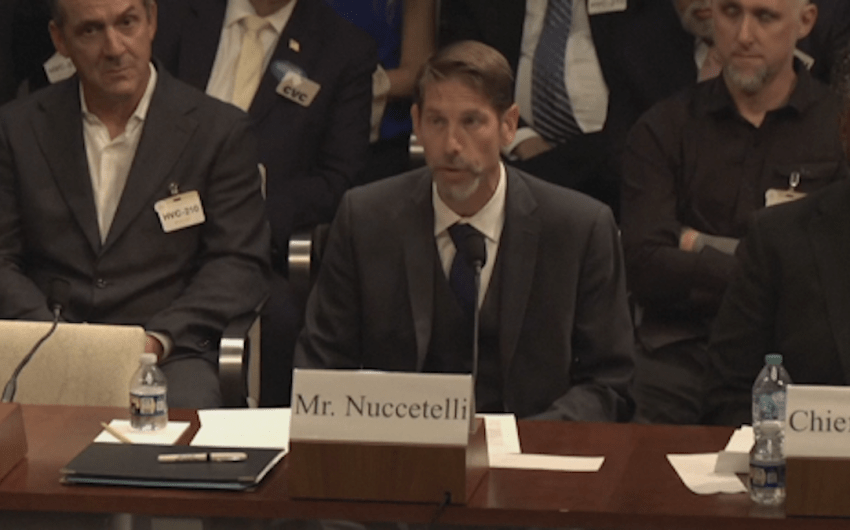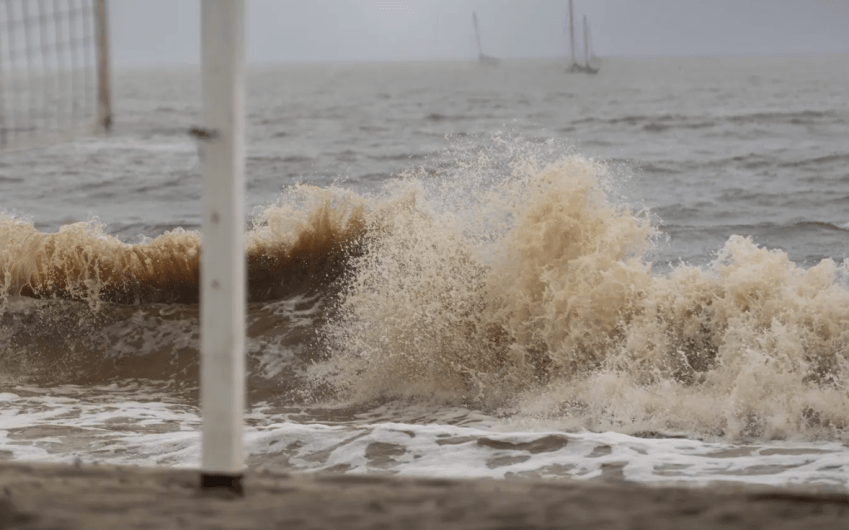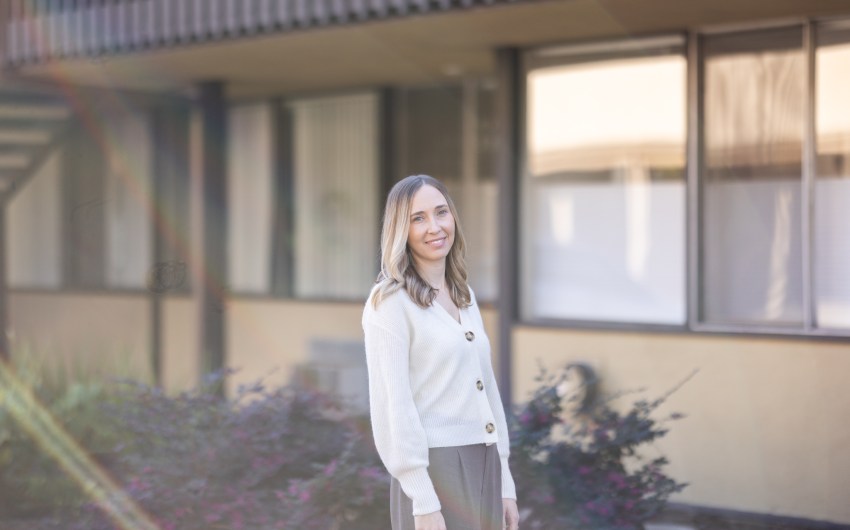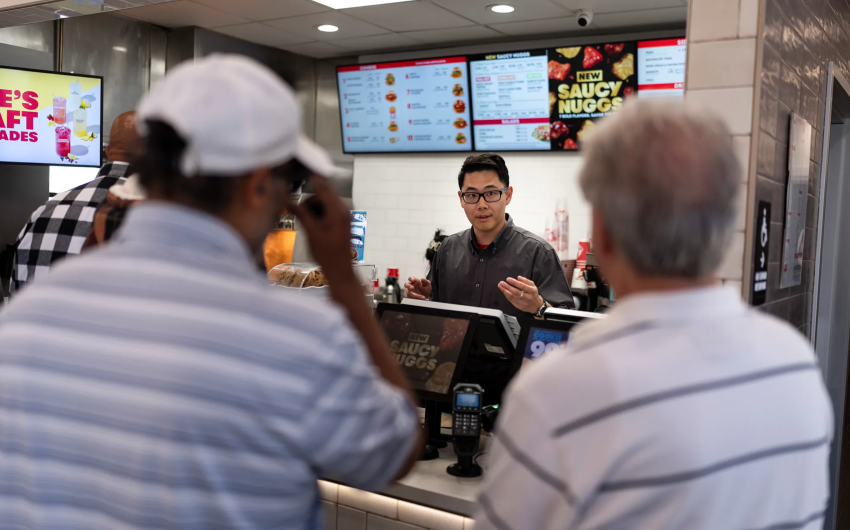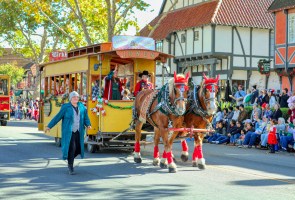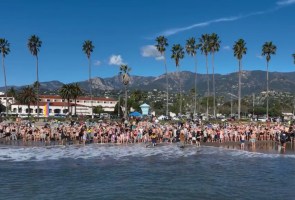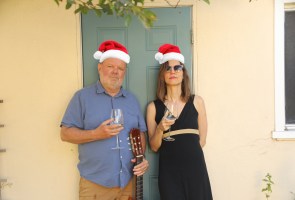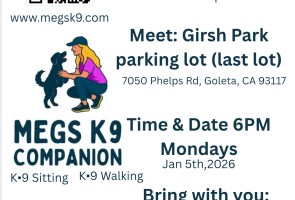Former Santa Barbara mayor Hal Conklin once said that downtown Santa Barbara should invoke “a sense of place, a sense of history, and a sense of celebration.” This week, the city unveiled a plan to restore the sense of soul into the city’s main core with the latest vision for the “people first” future of downtown, the State Street Master Plan.
The latest iteration of the State Street Master Plan came after countless hours of advisory committee hearings, more than 60 community events, 20 public meetings, and a survey of 6,000 city residents.
The meetings attracted hundreds of people, many speaking passionately, urging city leadership to keep the street pedestrian-only, to reopen it to cars, to get rid of the parklets, to increase bike infrastructure, and, most often, to clean up the chaotic pedestrian-bike traffic.
Community Development Director Eli Isaacson presented the latest plans to the State Street Advisory Committee on Wednesday, which recommended forming State Street into three different districts, with a “Grand Paseo” at its center.
Isaacson said the Grand Paseo came out of the public’s support of a “pedestrian-focused” space. The central Grand Paseo district is in keeping with the vision of Santa Barbara’s civic pioneers, Pearl Chase and Bernhard Hoffman, according to a city staff memo. Rebuilding the city after the devastating 1925 earthquake, they “envisioned a paseo network that would weave through downtown and connect iconic destinations like City Hall, De la Guerra Plaza, the courthouse, presidio, and the Santa Barbara Historical Museum.”
The Grand Paseo, from Ortega Street to Carrillo Street, would be a “highly walkable” corridor, with outdoor dining, play elements, and community gathering spaces. This could include a lane for micro-transit or pedicabs (a full-size trolley would travel parallel to State Street along Chapala and Anacapa streets).
But this configuration might come at the expense of bikes, which will either have to be rerouted to Chapala Street — a costly project that may result in a less-safe bike lane — or walked by cyclists through the 700 and 800 blocks of State during weekends, summer months, or major holiday events.
Heading toward the ocean would be the “Entertainment District.” Two options are to be considered. The first would make the 500 and 600 blocks of State Street like the pedestrian-first model of the Grand Paseo, with curbless, flat features. The alternative would allow one-way vehicular traffic from Haley Street toward Ortega Street.
On the 400 block of State, public safety officials strongly recommend maintaining two-way vehicular traffic, and a separate bike lane so that emergency vehicles could travel in both directions. The 300 block, which is currently undergoing a major renovation as part of the State Street undercrossing project, would keep its current configuration with two-way vehicle traffic, bicycle lanes, and sidewalks.
At the other end of State Street, the “Arts District” would stretch from Carrillo to Sola Street, serving as the cultural hub with the Museum of Art, Arlington and Granada theaters, the courthouse, and Santa Barbara Public Library. Designs include interactive art exhibits, sculptures, and small performance spaces.
Between Carrillo and Victoria streets, the plan is to allow one-way traffic heading north — as currently allowed near the Granada Theatre — with separated spaces for pedestrians and a bi-directional bike lane. On the 1300 block of State Street, from Victoria to Sola Street, the plan calls for traditional two-way traffic for cars, bikes, and pedestrians.
City officials hope that the advisory committee can produce a draft by this summer, followed by a three-month road show through city review boards. If all works out, the State Street Advisory Committee would see a final draft by the end of the year, ready for approval and a final trip in front of the City Council.
But it’s far from a done deal. Before Wednesday’s meeting, the city was already flooded with letters and emails both criticizing and praising the plan, and several prominent community members and organizations have floated their own ideas for the future of State Street.
City Administrator Kelly McAdoo said this plan was a balanced approach to a complicated issue. “There’s no one right answer,” she said. “There is going to be hysteria one way or the other.”
During the lengthy committee meeting on Wednesday, there were still a few strong opinions about bringing cars back to State Street, though the majority of residents and community members who spoke during public comment favored centering pedestrians and bicyclists.
Joanna Kaufman, a bicycle advocate who spoke in favor of a car-free State Street, said that the public discourse surrounding the topic has quickly become too emotional, with people using personal histories and idealized memories that “distort the reality of what has happened downtown.”
“To conclude that any one factor, including reintroduction of cars to State Street, as the solution to invigorate the downtown is overly simplistic — especially for the heart of the city’s cultural district,” Kaufman said. “Following that impulse would be a direct sacrifice of the very real placemaking and community building born out of a car-free street.”
Representatives from community organizations such as Strong Towns Santa Barbara — which has grown to more than 300 members — also showed support for the direction the plan is headed, with several public commenters calling on city leadership to take it a step further and continue the “flat and flexible” car-free zone through the entirety of the corridor, from the 400 block through the 1300 block.
With public comment taking up the bulk of the meeting, the committee members did not have an opportunity to comment on the new plan and continued the discussion for a second hearing, though there were several small group sessions that allowed the committee to offer a few notes on the newest version of the plan.
These small groups gave committee members a chance to brainstorm, and while every group seemed generally supportive of the outline of the plan, there were still questions about how the city would enforce the transitions between each zone, and whether some blocks would be better with one-way traffic or no traffic at all.
Committee Chair Dave Davis said that he was encouraged by what he saw at the meeting, and although there are still a lot of details to be worked out in the next meeting, he feels that the future of State Street is finally beginning to take shape.
Premier Events
Wed, Dec 31
9:00 PM
Santa barbara
NEW YEAR’S Wildcat Lounge
Sun, Jan 11
3:00 PM
Santa Barbara
Mega Babka Bake
Thu, Jan 01
7:00 AM
Solvang
Solvang Julefest
Thu, Jan 01
11:00 AM
Santa Barbara
New Year’s Day Pajama Brunch at Finch & Fork
Thu, Jan 01
11:00 AM
Santa Barbara
Santa Barbara Polar Dip 2026
Fri, Jan 02
6:00 PM
Santa Barbara
An Evening with King Bee!
Fri, Jan 02
7:00 PM
Santa Barbara
Barrel Room Sessions ~ DJ Claire Z 1.2.26
Fri, Jan 02
7:30 PM
Santa Barbara
Cosmic Dawn: When Galaxies Were Young
Sat, Jan 03
7:00 PM
Santa Barbara
Nic & Joe go Roy
Sat, Jan 03
8:00 PM
Santa Barbara
No Simple Highway- SOhO!
Sun, Jan 04
7:00 AM
Solvang
Solvang Julefest
Mon, Jan 05
6:00 PM
Goleta
Paws and Their Pals Pack Walk
Wed, Dec 31 9:00 PM
Santa barbara
NEW YEAR’S Wildcat Lounge
Sun, Jan 11 3:00 PM
Santa Barbara
Mega Babka Bake
Thu, Jan 01 7:00 AM
Solvang
Solvang Julefest
Thu, Jan 01 11:00 AM
Santa Barbara
New Year’s Day Pajama Brunch at Finch & Fork
Thu, Jan 01 11:00 AM
Santa Barbara
Santa Barbara Polar Dip 2026
Fri, Jan 02 6:00 PM
Santa Barbara
An Evening with King Bee!
Fri, Jan 02 7:00 PM
Santa Barbara
Barrel Room Sessions ~ DJ Claire Z 1.2.26
Fri, Jan 02 7:30 PM
Santa Barbara
Cosmic Dawn: When Galaxies Were Young
Sat, Jan 03 7:00 PM
Santa Barbara
Nic & Joe go Roy
Sat, Jan 03 8:00 PM
Santa Barbara
No Simple Highway- SOhO!
Sun, Jan 04 7:00 AM
Solvang
Solvang Julefest
Mon, Jan 05 6:00 PM
Goleta


